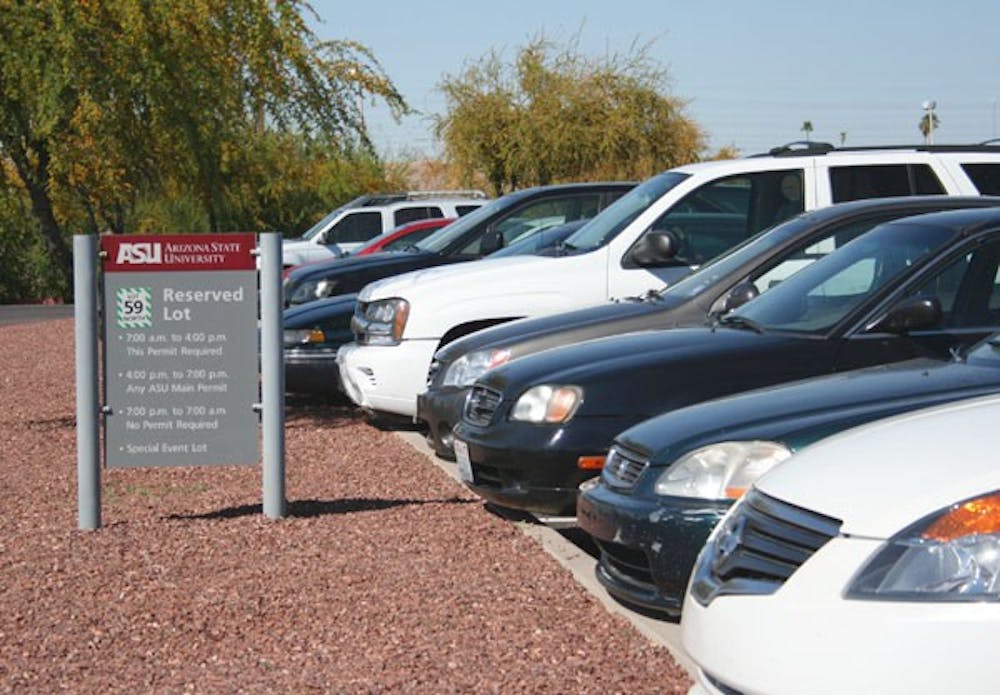Students and faculty who rely on public transit will be able to add parking privileges at ASU to their options next semester.
For an additional $50 to $100, students and faculty will be able to purchase the Eco-Pass, a supplemental parking pass to be used in conjunction with the Student U-Pass or Employee Platinum Pass.
The Eco-Pass will be available beginning Aug. 1, but only students and faculty who have transit passes — the U-Pass or Platinum Pass — can purchase the new pass.
The pass is valid in a reserved parking lot at one ASU campus of the recipient’s choice. Pass carriers can only use the parking permit 25 days per year.
The cost of an Eco-Pass for all-day parking is a significant discount. An Eco-Pass for the Rural Road Structure is $75, making the daily rate $3. The regular cost of visitor parking at the Rural Road Structure is $8 a day.
The Eco-Pass is intended for those who hold transit passes and have an occasional need to bring a vehicle to campus.
Public Transit Services spokeswoman Shereen Shaw said PTS hopes the program will provide the ASU community with another convenient, affordable option when it comes to campus travel.
Both before and after the Eco-Pass idea was developed, PTS officials surveyed students and faculty about their travel habits.
Participants expressed their concerns and desire to become more environmentally conscious in terms of parking less and using more alternative modes to arrive at campus, like the bus or light rail, PTS assistant director Melinda Helton said.
Results of a spring 2010 survey showed 75 percent of participants were interested in an Eco-Pass, and 68 percent indicated they needed to park no more than 25 times a year.
The survey also asked which parking structures were high in demand and how much customers would be willing to pay for a pass.
They used the results of these questions to help finalize the price of the Eco-Pass and the parking locations for users.
It combines sustainability with the convenience of parking, Shaw said.
Valley Metro spokeswoman Hillary Foose said the light rail is not affected by the Eco-Pass but she believes it is a great way to extend more options to students and faculty.
“The Eco-Pass will allow them the flexibility to occasionally park on campus for those rainy day situations,” Shaw said.
Psychology junior Breecole Fonteno said the Eco-Pass sounds like a good idea that will be very useful for her.
“I would probably spend the extra money on it because I live so far,” Fonteno said. “Some days I’m late to school and I don’t have any quarters or money to park somewhere else. Then I end up missing a class because by the time I park and wait for the light rail the class is halfway over.”
Reach the reporter at tchavez3@asu.edu





